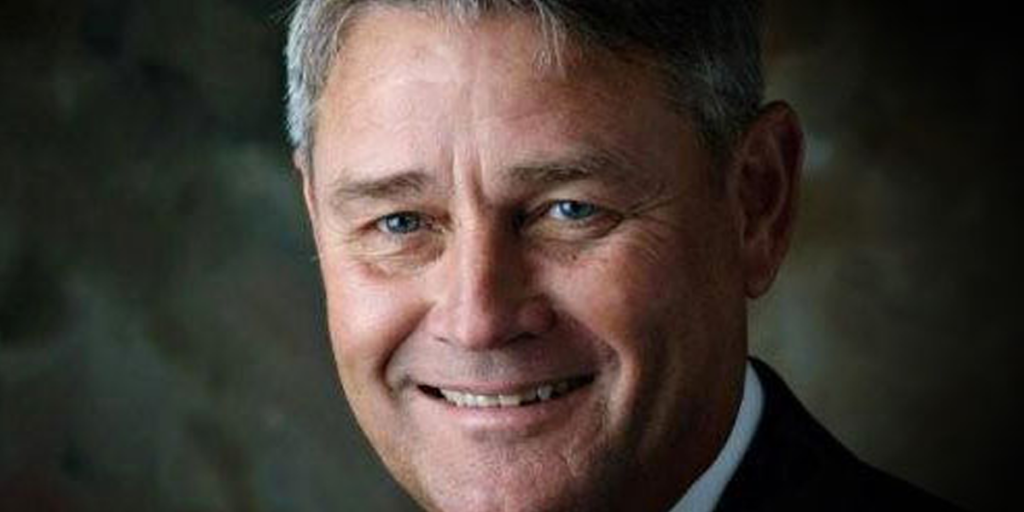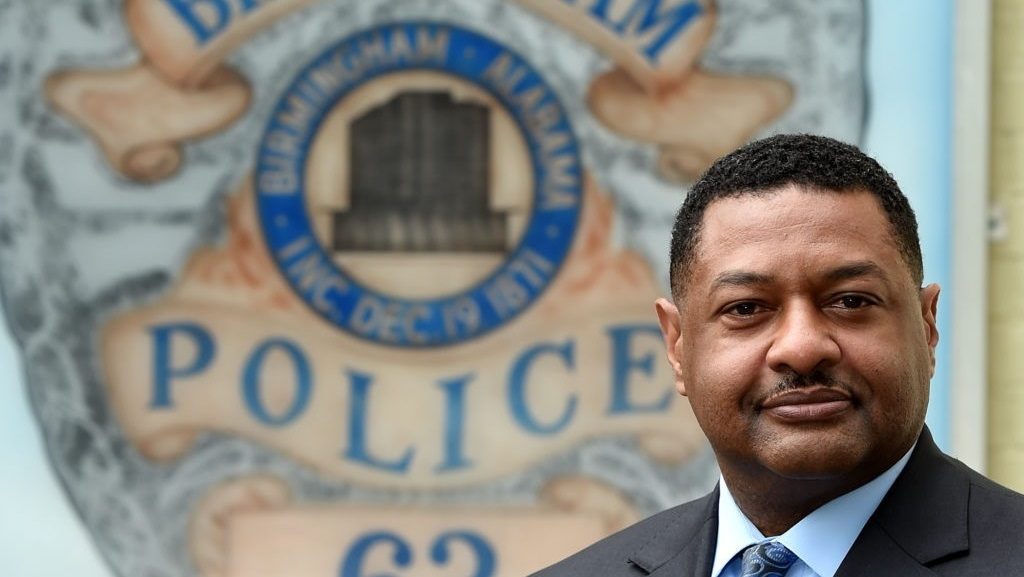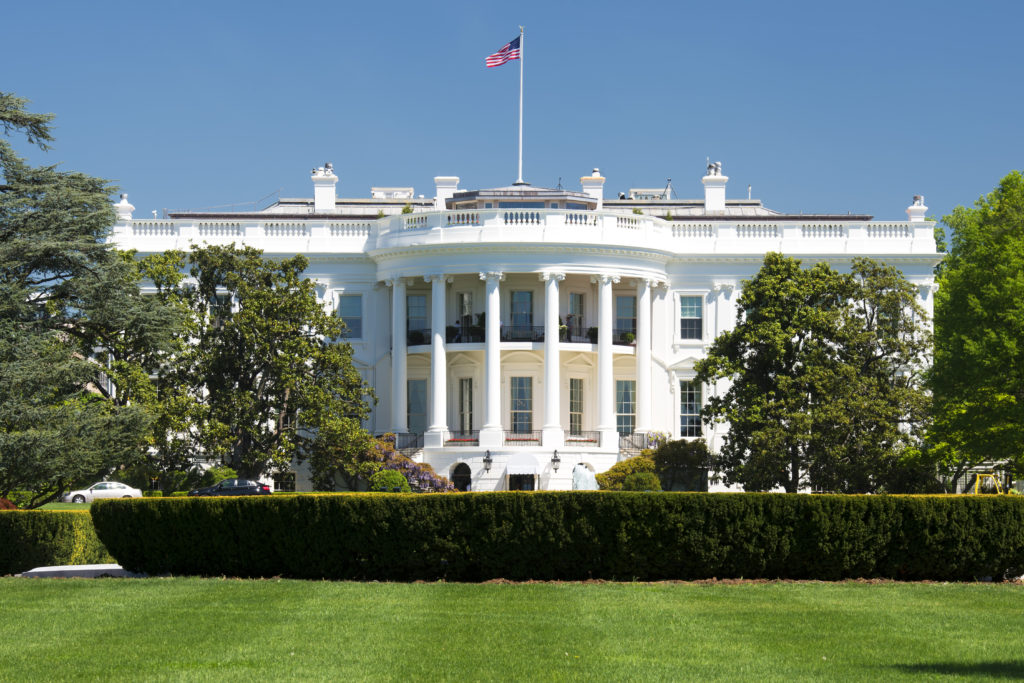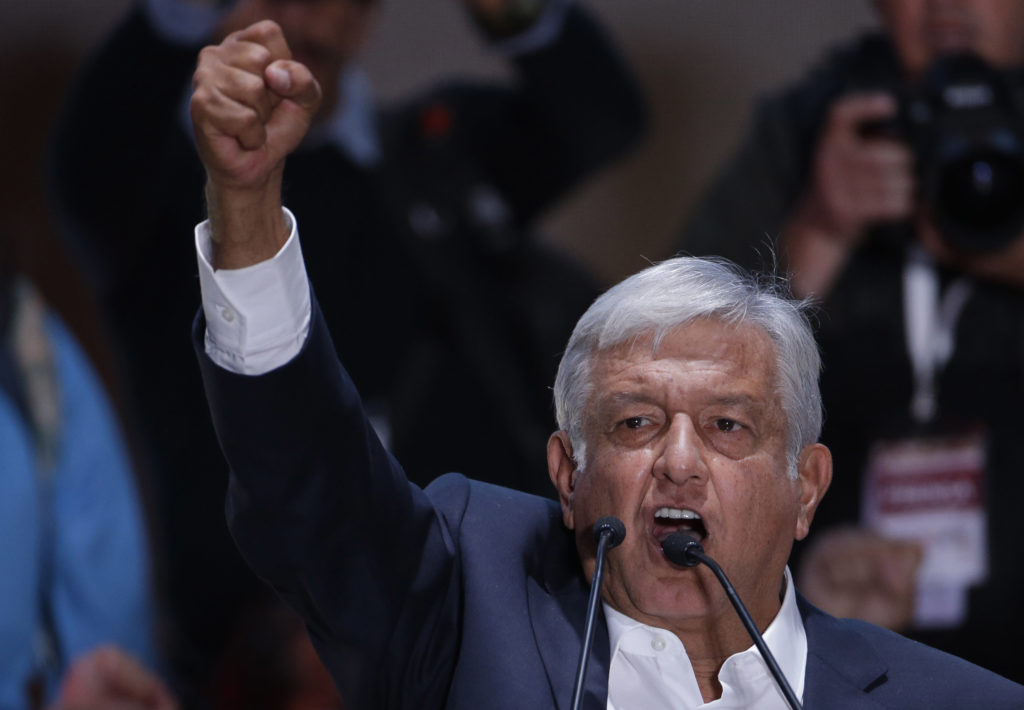Meet Christy Edwards, your presumptive, new Court of Civil Appeals, Place 1 Judge

In the race for Alabama Court of Civil Appeals Place 1, three candidates stepped up to the plate seeking election in the June 5 primary. Judge Christy Edwards and Judge Michelle Thomason both garnered enough support to tip the race into a runoff election in which Edwards took home 54 percent of the vote. Now, facing no Democratic challenger in the November general election, Edwards has presumably won her race and will become Court of Civil Appeals Place 1 Judge in 2019. With that in mind, here are the five things you need to know about Christy Edwards: 1. She’s a judge on the Alabama Tax Court. In 2016 Edwards was appointed to the Alabama Tax Tribunal where she currently serves as a Judge. According to her campaign website, she wants to bring her knowledge of tax laws to bear on the appeals process. “Everyone has to pay taxes – businesses, business owners, consumers and regular people,” Edwards said. “The businesses and the people of this state need a judge who will oversee the tax laws and protect the taxpayers according to all the laws overseen by this court. I will do that.” 2. She’s an award-winning writer and orator. In law school Edwards was the Regional Champion of the American Bar Association’s appellate advocacy competition, Regional Champion and national quarter finalist of the National Best Brief competition, and was named Jones Law School Best Oral Advocate. Her most recent articles have been published in the Journal of Multi-State Taxation and Incentives. 3. She was endorsed by primary opponent Pat Thetford. Primary opponent Pat Thetford endorsed Edwards, saying he believed she is the best candidate for the job and urged his supporters to vote for her in the runoff election. 4. She has two degrees from Alabama. After completing a bachelor’s degree in Finance and Economics from the University of Alabama, Edwards earned her Juris Doctorate from Faulkner University Jones School of Law and an LL.M. from the University of Alabama School of Law with a focus on complex state tax laws. 5. She previously served as an Assistant Attorney General. Edwards practiced family and commercial and civil litigation in her own private practice for 2 years after law school. She then was appointed to serve as an attorney for the court of civil appeals before becoming an Assistant Attorney General under then Attorney General Luther Strange in 2011. There, she represented the state in state and local tax disputes in the Alabama Department of Revenue.
Five things you need to know about Chip Beeker

Incumbent Public Service Commissioner Place 2 candidate Chip Beeker won the June 5 primary with ease garnering over 68 percent of the vote. But now that the primaries are over, the real battle has begun. Beeker will now face Democratic nominee Kari Powell in the November 6 general election for the PSC seat. With that in mind, here are the five things you need to know about Chip Beeker: 1. He’s a farmer by trade. Before being elected for his first term on the Public Service Commission in 2014, Beeker was the owner and operator of Beeker Catfish and Cattle Farms, and the Beeker Timber Company in Eutaw, Ala. 2. He was a county commissioner for 20 years. First elected in 1986, Beeker served as a member of the Greene County Commission until 2006. During his time in office, he served as Chairman of the commission for ten years. He also served on several advisory boards throughout the Black Belt, coached basketball and baseball at Warrior Academy, and was selected as a Pillar of West Alabama by the Community Foundation of West Alabama. 3. He served in the National Guard for 8 years. After graduating from Greene County High School, Beeker joined the National Guard where he served for eight years. He later went to college at the University of West Alabama. 4. He has actual experience working in the energy industry. Following his graduation from the University of West Alabama, where he earned a degree in Commerce and Business; Beeker worked at the James M. Barry Steam Plant and the William Crawford Gorgas Electric Generating Plant, giving him first-hand knowledge of renewable energy in Alabama. 5. He seemingly sought to make a profit from his office. Perhaps the most crucial of the five things to know about Beeker is that he seemingly sought to make a profit from his office. In 2016 Beeker was interested in leasing his personal farm property — 451 acres he owns in Greene County — to a solar energy company, to Virginia-based Coronal Development Services, that planned to sell energy to Alabama Power for solar facilities. The conflict? The PSC regulates Alabama Power. For clarity’s sake, Coronal apparently did not know Beeker was a member of the PSC when the contract was offered. Seeming to understand the potential ethics issue, Beeker first went to the PSC’s in-house ethics authority — administrative law judge John Garner — who told him he had every right to pursue the contract, but suggested Beeker seek the opinion of the Alabama Ethics Commission for a more definitive response. The Commission ultimately told him no, he could not lease the land to the power company, saying they could not conclude that the lease wouldn’t present a conflict of interest between Beeker and his office. The contract would have awarded his $500 an acre for at least 25 years. If Beeker had been able to lease all of the acreage available he could have made over $5.6 million over the course of the contract. In a hope to save his name, Beeker relied on the fact that he first approached Garner, who said it was okay to pursue the contract. “I would like to publicly say that everything I did, I did with the blessing of Judge Garner,” Beeker told Lagniappe Mobile. “When I got a call in the spring, could somebody come see me and look at something, I said, ‘I’ll let you know.’ And when I had his blessing and permission, I did.” “I’ve done nothing, absolutely nothing but the letter of the law and the blessing of the judge,” Beeker continued. “Those are the facts and I appreciate being able to say that.”
Auto supplier Unipres to add 70 jobs in $40 million Alabama expansion

Unipres, an automotive supplier specializing in stamping technologies, plans to invest $40 million in an expansion that will create 70 jobs at its Alabama production facility, according to the St. Clair County Economic Development Council. The expansion at the company’s production center in Steele will include adding a hot stamping process. The project will enhance production and allow the company to further support supplying quality parts for Nissan Motor Co.’s luxury mid-size vehicle. In addition, Unipres Alabama has been a Tier One supplier to Honda Manufacturing of Alabama in Lincoln and Honda’s East Liberty Plant in Ohio for many years. “Unipres has found a home in Steele, Alabama, and this new business investment will help us meet customer demand though leading-edge manufacturing processes to meet light weighting vehicles,” said President Kiyotaka Kawashima. “Unipres Alabama hopes to extend supplying the hot stamping products to Honda plants in the U.S. and other OEMs. We look forward to continued growth in the community as St. Clair County and the Town of Steele have given us very strong support,” he added. Gov. Kay Ivey welcomed the Unipres expansion. “Unipres’ decision to expand its St. Clair County manufacturing facility is great news because it means that the company is finding success in Alabama,” Ivey said. “This expansion is a testament to the Unipres workforce and the support the company has received for its operation in Steele.” Expanding capabilities Greg Canfield, secretary of the Alabama Department of Commerce, said Unipres’ latest project will expand the capabilities of its manufacturing operation in Steele. Unipres added 55 jobs in a 2015 expansion, according to Commerce data. “Unipres Alabama is a success story in the state’s dynamic auto industry, and this expansion shows that the company’s leadership recognizes Alabama’s pro-business advantages,” he said. Canfield joined St. Clair officials for meetings in Japan with Unipres executives in 2016. Mayor Roger Adams said assistance from the Alabama Department of Commerce, AIDT and the Alabama Department of Economic and Community Affairs helped make the expansion possible. “Steele is proud to count Unipres as one of our great industrial companies,” Adams said. “They are one of our largest employers, and we congratulate them on their continued growth and success.” St. Clair County Commission Chairman Paul Manning also congratulated Unipres on its growth plans. “Unipres is a major automotive supplier in St. Clair County, and we wish them continued success,” he said. Republished with the permission of the Alabama Newscenter.
Groups call for Birmingham to be a sanctuary city after illegal immigrant arrests

Across a five-state ICE region, which includes Alabama, on average 200 illegal immigrants are being arrested each week, according to Bryan Cox, Southern Region Communications Director for U.S. Immigration and Customs Enforcement (ICE) in a weekend AL.com piece. According to Cox, the region consists of Alabama, Arkansas, Louisiana, Mississippi and Tennessee, and “about 90 percent of arrests in fiscal year 2017 and the first two quarters of fiscal 2018 were criminal.” In light of the arrests, immigrant rights organizations such as Hispanic Interest Coalition of Alabama (HICA) and Alabama Coalition for Immigrant Justice (ACIJ) are pushing for Birmingham Mayor Randall Woodfin to make the Magic City a sanctuary city to protect the illegal immigrants. “At least have Birmingham to recognize the work of immigrants and undocumented immigrants in our city,” ACIJ Lead Organizer Miguel Carpizo said. Multi-year effort Last January, then-Birmingham Mayor William Bell held a press conference with community leaders naming Birmingham a “welcoming city” regardless of immigration status. “Every individual who resides, works, plays or come through the city will know they are welcome and have no fear in interacting with their municipal government in any way,” Bell said. Following his press conference, the Birmingham City Council unanimously passed a resolution supporting illegal immigrants, though they did not declare it as a sanctuary city. But the HB56, also known as the Beason Hammon Act, stopped the city from setting a policy contrary to federal or state law.
US plans for dismantling North Korea nukes may face resistance

The United States has a plan that would lead to the dismantling of North Korea’s nuclear weapons and ballistic missile programs in a year, President Donald Trump‘s national security adviser said, although U.S. intelligence reported signs that Pyongyang doesn’t intend to fully give up its arsenal. John Bolton said top U.S. diplomat Mike Pompeo will be discussing that plan with North Korea in the near future. Bolton added that it would be to the North’s advantage to cooperate to see sanctions lifted quickly and aid from South Korea and Japan start to flow. The State Department said the U.S. ambassador to the Philippines, Sung Kim, who led policy negotiations with North Korea before the summit, traveled to the demilitarized zone between the two Koreas on Sunday to resume talks on next steps on implementing the joint declaration Trump and North Korean leader Kim Jong Un signed in Singapore. In that summit declaration, the North committed “to work toward complete denuclearization of the Korean Peninsula.” The short joint statement did not define how that would be achieved or say when the process would begin or how long it might take. “Our goal remains the final, fully verified denuclearization of the DPRK, as agreed to by Chairman Kim in Singapore,” the department said Monday. DPRK stands for the North’s official name, the Democratic People’s Republic of Korea. Bolton’s remarks Sunday on CBS’ “Face the Nation” presented a very ambitious timeline for North Korea to fulfill that commitment. Secretary of State Mike Pompeo told reporters three weeks ago that the U.S. wants North Korea to take “major” nuclear disarmament steps within the next two years — before the end of Trump’s first term in January 2021. Despite Trump’s rosy post-summit declaration that the North no longer poses a nuclear threat, Washington and Pyongyang have yet to negotiate the terms under which it would relinquish the weapons that it developed over decades to deter the U.S. Doubts over North Korea’s intentions have deepened amid reports that it is continuing to produce fissile material for weapons. The Washington Post on Saturday cited unnamed U.S. intelligence officials as concluding that North Korea does not intend to fully surrender its nuclear stockpile. Evidence collected since the June 12 summit in Singapore points to preparations to deceive the U.S. about the number of nuclear warheads in North Korea’s arsenal as well as the existence of undisclosed facilities used to make fissile material for nuclear bombs, according to the report. It said the findings support a new, previously undisclosed Defense Intelligence Agency estimate that North Korea is unlikely to denuclearize. Some aspects of the new intelligence were reported on Friday by NBC News. A U.S. official told The Associated Press that the Post’s report was accurate and that the assessment reflected the consistent view across U.S. government agencies for the past several weeks. The official was not authorized to comment publicly on the matter and requested anonymity. Bolton on Sunday declined to comment on intelligence matters. He said the administration was well-aware of North Korea’s track record over the decades in dragging out negotiations with the U.S. to continue weapons development. “We have developed a program. I’m sure that Secretary of State Mike Pompeo will be discussing this with the North Koreans in the near future about really how to dismantle all of their WMD and ballistic missile programs in a year,” Bolton said. “If they have the strategic decision already made to do that, and they’re cooperative, we can move very quickly,” he added. He said the one-year program the U.S. is proposing would cover all the North’s chemical and biological weapons, nuclear programs and ballistic missiles. Even if North Korea is willing to cooperate, dismantling its secretive weapons of mass destruction programs, believed to encompass dozens of sites, will be tough. Stanford University academics, including nuclear physicist Siegfried Hecker, a leading expert on the North’s nuclear program, have proposed a 10-year roadmap for that task; others say it could take less time. Pompeo has already visited Pyongyang twice since April to meet with Kim — the first time when he was still director of the CIA — and there are discussions about a possible third trip to North Korea late next week but such a visit has not yet been confirmed. Trump reiterated in an interview broadcast Sunday that he thinks Kim is serious about denuclearization. “I made a deal with him. I shook hands with him. I really believe he means it,” the president said on Fox News Channel’s “Sunday Morning Futures with Maria Bartiromo.” Trump defended his decision to suspend “war games” with close ally South Korea — a significant concession to North Korea, which so far has suspended nuclear and missile tests and destroyed tunnels at its nuclear test site but not taken further concrete steps to denuclearize. “Now we’re saving a lot of money,” Trump said of the cancellation of large-scale military drills that involve flights of U.S. bombers from the Pacific U.S. territory of Guam. Pressure will now be on Pompeo to make progress in negotiations with North Korea to turn the summit declaration into concrete action. He spoke with the foreign ministers of China, Japan and South Korea in recent days about the situation with the North, according to the State Department, which has declined to comment on any upcoming travel. Pompeo postponed plans to meet with Defense Secretary Jim Mattis and their counterparts from India on July 6, citing unavoidable circumstances, which has fueled speculation he will make a third trip to Pyongyang. Republished with permission from the Associated Press.
Patrick Smith takes command as Birmingham’s new police chief

Patrick Smith took office June 25 as Birmingham’s new police chief, and among his belongings is an envelope he’s carried since the start of his law enforcement career 28 years ago. When Smith joined the Los Angeles Police Department in 1990, his mother gave him a sheet of paper and asked him to write his goal for the future. He wrote four words: “Chief of Police, Birmingham.” “I kept that piece of paper in an envelope for the duration of my career,” Smith said in a recent interview with the Birmingham Times. “When I received the call from (Mayor Randall Woodfin about) becoming chief of police in Birmingham, it was a very emotional moment because I pointed to the heavens and said, ‘I told you, Mom, we could do it.’” Smith’s mother, Dorothy, died seven years ago, but she would be proud of her son — a veteran LAPD administrator who is now police chief for Alabama’s largest city. After a five-month search, Woodfin announced June 4 that Smith would serve as chief of the Birmingham Police Department. Smith, 54, a Tuscaloosa native, is taking over during a time when homicides and some violent crimes have increased in Birmingham, and residents and city leaders want something done. “I love the city, but I would like for there to be better police protection when stuff goes on,” said Prude Fuller, president of the Airport Highlands Neighborhood Association. “I think that’s very important because there’s too much crime … in the city in general.” Smith has heard from residents and read up on Birmingham, and he is aware that crime stats will be watched closely during his tenure. He doesn’t want anyone to expect an overnight fix, though. Top priority “The biggest thing I see for the BPD is hiring, recruitment and retention,” Smith said. We can’t do anything until we … get the right people on the job. Currently, we have more than 100 vacancies. That affects the number of people who are out on patrol, who are addressing calls. We need to address the basic services (such as 911 calls) before we do everything else. That’s going to be one of my primary focuses because (we need to have the right) people to address crime.” Smith knows he must also get out among the residents in Birmingham’s 99 neighborhoods and 23 communities. Birmingham City Council President Valerie Abbott said, “I would advise (Smith) to meet with the (23) communities and hear what they have to say. “(All) 99 neighborhoods would be too many to meet with, but the people who actually live in the neighborhoods know what the problems are.” That’s part of his mission, Smith said: “I plan to learn the 23 communities and 99 neighborhoods within the city because each one has to have a different formula for what will work. Law enforcement is not one-size-fits-all. I’m not coming into Birmingham thinking I know everything about the city and everything that’s going on.” Alabama native “Growing up the youngest of 13 was a very interesting experience,” he said. “You learn different roles. You learn to be a negotiator. You learn to be a collaborator. You learn to work with your family as a team. You learn how to resolve problems. I think all of those are important and effective tools in law enforcement.”Smith was born and raised in Tuscaloosa and attended Central High School. He is the youngest of 13 siblings, which in some ways helped prepare him for his career. He remembers watching cop shows when he was younger, including “The Mod Squad” with the supercool Clarence Williams III as Lincoln “Linc” Hayes, described by Smith as a “very dynamic character.” “Just the fact that they were working kind of a quasi-undercover assignment, I found that interesting,” Smith said of the TV crime drama that aired from 1968 to 1973. Family ties Smith’s upbringing — with his mother, Dorothy, a Head Start teacher, and his father, Jasper, a longtime worker at Tuscaloosa’s Central Foundry — has always been his strongest influence. His parents “were both down-to-earth, genuine people,” Smith said. “They kept a close-knit family. In fact, my family still has dinner together every Sunday after church. When my mother passed away, we were able to track her membership at our family church back 53 years. Just coming back here and being able to return to (First African Baptist Church in Tuscaloosa), which my mother … and entire family attended for many, many years, is a blessing within itself.” Smith’s law enforcement career came into focus when he joined the military. He served seven years in the U.S. Marine Corps, completing his basic training at Parris Island, S.C. And he made stops at Camp Pendleton in California, as well as in Okinawa, Japan; Fuji, Japan; and the Philippines. “One of the things I did while traveling extensively was learn different cultures, different people, and different environments … just learn about people,” Smith said. “I think it has been extremely important because (it taught me) to respect different cultures and different people, how they were brought up, and the things that are important to them.” How does that apply to the duties of a police officer? “I can take someone to jail, but I don’t have to disrespect them as a person,” he said. “I can bring them in for what they’ve done, and they can be held accountable through the criminal justice system. But as an individual officer, as an individual person, it’s always important to treat (people) with dignity and respect regardless of what they’ve done.” LAPD In Los Angeles, Smith worked his way up through the ranks, starting as a patrol officer, then becoming a police field-training officer and instructor, sergeant, lieutenant and captain. Most recently, since 2015, he served as a police commander. Transitioning from a large city like Los Angeles to a smaller one like Birmingham can be a culture shock. LA has a population of nearly four million, and the LAPD has approximately 9,000 sworn officers and 3,000 civilian employees. Birmingham has
Emily’s Law comes into effect, boosts penalties for dangerous dogs

Emily’s Law, a bill passed in this year’s legislative session came into effect on July 1, boosting penalties for dangerous dogs, and dog owners. Emily Colvin, a 24 year-old was attacked and killed by a pack of five dogs in Northeast Alabama in December of 2017, prompting legislators to take action to prevent the same kind of tragedy. Senate Bill 232, sponsored by Scottsboro-Republican Sen. Steve Livingston, was successfully passed in March and makes those who own dangerous dogs responsible for their animal’s actions. Under the new law, dog owners whose animal kills someone can be charged with a class B felony which is punishable by two to 20 years in jail and up to $30,000 in fines. The new law also requires reports and investigations from the police every time a dog bites someone. “We have had two people killed by dogs in North Alabama in the last few months. We have had people killed by dogs in this state. This is not a laughing matter,” said Rainsville-Republican Rep. Nathanial Ledbetter, according to Alabama Political Reporter. Importantly; dangerous dogs are not defined based on breed or type, but rather by weather or not the dog has bitten, attacked, caused physical injury, or death to a person without justification. If a dog has attacked a person, and the investigation of the attack leads to the conclusion that the dog is dangerous, the pet is then impounded at a local animal shelter, or, if the owner sees fit, impounded at the veterinarian office of their choice for the duration of the court case. Owners will then be summoned to municipal court to face a judges decision on the dog. If the dog has caused physical harm then a judge can declare a dog dangerous, and it can be euthanized. If the dog is deemed dangerous, but has not caused any physical damage the dog can be euthanized or returned to the owner under strict conditions. Under the law, dog owners whose animal attacks someone who is trespassing on their property will not be prosecuted, and the dogs cannot be claimed dangerous.
Donald Trump White House sets turnover records

President Donald Trump has seen staff turnover in excess of 37 percent over the calendar year ending June 30, an AP analysis of White House filings shows. According to the most recent filing, 141 staffers who worked for the president at that point last year are gone, with 138 new arrivals. The figures don’t include those who arrived and departed during the year — like short-lived communications director Anthony Scaramucci — or those who departed before June 30, 2017. Trump’s White House is setting records for attrition, said the White House Transition Project’s Martha Joynt Kumar. Some 61 percent of Trump’s senior-most aides have left the White House. Only Bill Clinton’s 42 percent comes close for the last five administrations. The White House’s annual salary disclosure to Congress shows that more than 170 staffers received raises over that period, largely reflecting promotions. Jordan Karem, the former deputy director of advance and now the director of Oval Office operations, received a $50,000 raise to $165,000. First Lady Melania Trump’s spokeswoman, Stephanie Grisham, received a $40,000 bump to $155,000. Research director Adam Kennedy, who was previously the deputy, received a $38,000 increase. Sylvia Davis, a deputy policy coordinator, received the largest increase. She now makes 121 percent, or $85,000, more than the $70,000 she made as an assistant staff secretary. New employees include National Security Adviser John Bolton, who makes the maximum $179,700 and deputy press secretary Hogan Gidley, who takes in $130,000 annually. Senior advisers Jared Kushner and Ivanka Trump still draw no salary, according to the latest disclosure. Republished with permission from the Associated Press.
Alabama Back-to-School Sales Tax Holiday weekend set for end of July

If you want the most bang for your buck when it comes to back-to-school shopping, save the date and get ready to purchase supplies July 20-22. It’s the state’s 13th annual sales tax holiday for school-related items. From 12:01 a.m. Friday, July 20, until midnight, Sunday, July 23, the state waives its four-percent sales tax on school-related supplies and clothing. Shoppers can avoid paying taxes on clothing worth less than $100, including school uniforms, shoes, shocks or diapers. Accessories, protective equipment and sports gear cannot be sold tax-free. Computers can be sold tax-free if the individual parts are sold as a package worth less than $750. School supplies worth less than $50 including ink and paper are tax-free. School books worth less than $30 are eligible for the exemption. More than 300 cities and counties throughout Alabama have agreed to waive their local taxes as well, for a savings of up to 10 percent in some areas. Check the 2018 participating cities and counties list to determine if your local communities are participating. #ShopAlabamaForTheKids In addition to encouraging shoppers to buy from local retailers by promoting the use of their hashtag #ShopAlabama, the Alabama Retail Association will also promote #ShopAlabamaForTheKids, a new extension of their campaign. There, they will ask shoppers to consider picking up an extra school supply or two to donate to local school children in need. They have partnered with nonprofit organizations to promote and support school supply drives throughout the state. MONTGOMERY AREA: Drop off donated school supplies at HandsOn River Region at 101 Coliseum Boulevard, Montgomery, AL, Monday through Thursday, 8:30 a.m. – 3:30 p.m. BALDWIN COUNTY AREA: Drop off donated school supplies at the Eastern Shore Chamber of Commerce at 327 Fairhope Ave., Fairehope, AL, or Baldwin County United Way at 700 N McKenzie Street, Foley, AL.You can also support the Eastern Shore Chamber of Commerce Young Professionals and United Way of Baldwin County Young Leaders at their “Pencils & Glue for Bingo & Brew”. The event is a school supply fundraiser for the Rotary Youth Club and Ruff Wilson Youth Center. It is Thursday, July 26, from 5:30 – 8 p.m. at Fairhope Brewing Company. Admission is a $10 donation or a bag of school supplies. DOTHAN AREA: Drop off supplies for the Dothan Education Foundation at Wiregrass Commons Mall (Mall Office) or Army Aviation Federal Credit Union from July 19 until July 30. You can also take part in the 2018 Back-to-School Bash on Saturday, July 21 at Wiregrass Commons Mall. Families will have an opportunity to help Dothan Education Foundation “STUFF THE BUS” for Dothan City Schools
Mexico’s victor reaches out to Donald Trump, seeks NAFTA deal

The morning after his crushing election victory, Mexico’s president-elect Andres Manuel Lopez Obrador thanked President Donald Trump for his congratulation message and said he’ll contact the U.S. leader to “reach an understanding.” Lopez Obrador said in an interview Monday with the Televisa news network that Trump’s Tweet Sunday night “was very respectful. That is what we always want to maintain with the U.S. government, that there be mutual respect.” Trump tweeted Sunday that “I look very much forward to working with him. There is much to be done that will benefit both the United States and Mexico!” “We are never going to disrespect the U.S. government, because we want them to respect us,” Lopez Obrador said. “At the appropriate moment, we are going to get in touch, to reach an understanding” with the Trump administration. “We are conscious of the need to maintain good relations with the United States,” he added. Lopez Obrador had been compared to Trump for his populist, nationalist rhetoric and sometimes touchy personality — as well as his past skepticism about the trade deal. But Lopez Obrador said he supports reaching a deal on renegotiating the North American Free Trade Agreement with the United States and Canada. The talks have been stalled over the Trump administration demands for higher U.S. content and a “sunset clause” in the 1994 trade agreement. Lopez Obrador said he will propose that his own team of experts be included in the talks. The winning candidate said he will make that proposal in a meeting Tuesday with current President Enrique Pena Nieto. Lopez Obrador told Televisa that he will respect the current team of negotiators, and let them continue representing Mexico until he takes office Dec. 1. Lopez Obrador said he wants to have information on what’s being discussed and “to help as much as we can.” With just over half of votes counted on Monday, Lopez Obrador had about 53.7 percent of the votes, a remarkable margin not seen in the country for more than three decades. A prominent exit poll predicted his party allies were poised to score big victories in congressional and governorship races. Lopez Obrador, who campaigned on vows to transform Mexico and oust the “mafia of power” ruling the country, rode widespread voter anger and discontent with the governing Institutional Revolution Party, or PRI, of President Enrique Pena Nieto and had led opinion polls since the beginning of the campaign. The PRI, which dominated Mexican politics for nearly the entire 20th century and recaptured the presidency in 2012, was set to suffer heavy losses, not just for the presidency but in other races as well. In brief remarks at a hotel in central Mexico City late Sunday, Lopez Obrador called for reconciliation after a polarizing campaign and promised profound change but with respect for the law and constitutional order. “I confess that I have a legitimate ambition: I want to go down in history as a good president of Mexico,” said Lopez Obrador, who had lost in the previous two presidential elections. “I desire with all my soul to raise the greatness of our country on high.” Lopez Obrador said he would “seek to establish an authentic democracy and we do not intend to establish a dictatorship.” He said, “The changes will be profound, but in accordance with established order.” Conservative Ricardo Anaya of a right-left coalition and the PRI’s Jose Antonio Meade acknowledged defeat shortly after polls closed nationwide. The quick count had them around 22 percent and 16 percent, respectively. Lopez Obrador said individual and property rights would be guaranteed, promised respect for the autonomy of the central Bank of Mexico and said his government will maintain financial and fiscal discipline. He said contracts obtained under energy reforms passed under President Enrique Pena Nieto will be scrutinized for any corruption or illegality, but otherwise contracts will be honored. “There will be no confiscation or expropriation of assets. … Eradicating corruption will be the principal mission,” he said. Lopez Obrador also spoke of reducing Mexican immigration to the United States through economic development. “Mexicans will be able … to work and be happy where they were born,” he said. And rather than the use of force to fight spiraling violence, he will look to fix root causes such as inequality and poverty. Partial vote counts also showed probable gubernatorial wins for allies of Lopez Obrador’s Morena party in at least four of eight state races on the ballot plus for the head of government in Mexico City. The central state of Guanajuato was expected to go to a candidate of the conservative National Action Party. The polling firm Consulta Mitofsky predicted Morena allies would take between 56 and 70 seats in the 128-member Senate and between 256 and 291 spots in the 500-seat lower house. Republished with permission from the Associated Press.
Bradley Byrne: Celebrating our Independence

On July 4th, 1776, the Continental Congress met in Philadelphia and formally adopted the Declaration of Independence. On this important day in our nation’s history, our Founding Fathers put their signatures on a piece of paper that not only declared independence from Great Britain, but also declared the essential values that define us as Americans. This document ignited a sense of American pride with the memorable and historic opening statement: “We hold these truths to be self-evident, that all men are created equal, that they are endowed by their Creator with certain unalienable Rights, that among these are Life, Liberty and the pursuit of Happiness.” As I reflect on what these words mean to us as Americans, I am reminded of the great sacrifices of the men who wrote them and those who defend this promise still to this day. It is important for us to remember that the Declaration of Independence was just the beginning. The words inked into history set the core principles for American values: bravery, service, sacrifice, optimism, and honor. From the triumph at Yorktown and the surrender of General Charles Cornwallis to the battles we fight across the world today, brave men and women have answered the call of service and defended these core American values at home and abroad. It is because of the sacrifices of our servicemembers that Americans can sleep soundly at night knowing their freedoms are protected. This week, like every year, Americans will don the colors of the flag and remember that momentous day over two hundred years ago when our nation was born. People across the country will celebrate our nation’s history with fireworks, trips to the beach, barbecues, and family vacations. One tradition I hold dear is reading the entire Declaration of Independence aloud with family and friends, assigning different parts to different people, including children. There is nothing more powerful than hearing the words written in that historic and fundamental document. When the Founding Fathers got together to compose the Declaration, they came from different backgrounds and upbringings with their own, unique ideas for forming the American government. At such a pivotal time in our nation’s history, they succeeded in setting aside their differences for a common goal to create our own American identity. Who knows where we would be today if they had not worked together and overcome their differences. Much like then, there are forces at work in our society today seeking to divide us against one another and weaken our national spirit. Regardless of your race, religion, or creed, this Fourth of July, I urge you to look closely at the many ways we are united as Americans, rather than focus on our differences. At the end of the day, we all salute the red, white, and blue and should not let our differences dissolve our core values and beliefs. That said, do not give up on the American dream. Do not back down from the challenges of today. Do not let anyone tell you that our country’s best days are in the past. We have so much to be thankful for in the United States, and I am confident that we have so much to look forward to. As we reflect on this renewed sense of American pride, let us look to the future with determination and confidence and keep alive the vision that our Founding Fathers had on that day back in 1776. Happy Fourth of July to you and your family, and may God continue to bless the United States of America. ••• Bradley Byrne is a member of U.S. Congress representing Alabama’s 1st Congressional District.
Alabama ranks 2018’s 10th worst state to start a business

Starting a business is never easy — according to U.S. Bureau of Labor Statistics data, about a fifth of all startups typically don’t survive past year one of operation, and nearly half never make it to their fifth anniversary — but it may be especially difficult in Alabama. On Monday, personal finance site WalletHub ranked Alabama as the 10th worst state in its “2018’s Best & Worst States to Start a Business” report. The site compiled its list in effort to determine the most fertile grounds for planting and growing new ventures. A state that provides the ideal conditions for business creation — access to cash, skilled workers and affordable office space, for instance — can help new ventures not only take off but also thrive. WalletHub analysts compared the 50 states across 25 key indicators of startup success to determine the most fertile grounds in which to launch and grow an enterprise. Starting a business in Alabama (1= best; 25= avg.): 44th: Avg. growth in number of small businesses 18th: Office-space affordability 24th: Availability of human capital 47th: Industry variety 47th: Startups per capita The states that ranked worse than Alabama include Connecticut, Maryland, New Jersey, West Virginia, Pennsylvania, Vermont, Rhode Island, New Hampshire and Hawaii. The best states to start a business include Texas, Utah and and nearby Georgia and Florida. Here’s how Alabama compares to the rest of the country: Source: WalletHub

